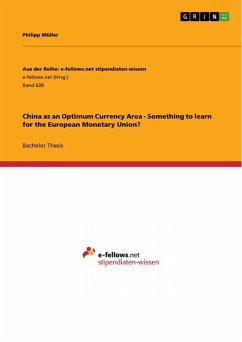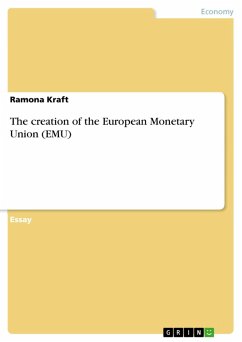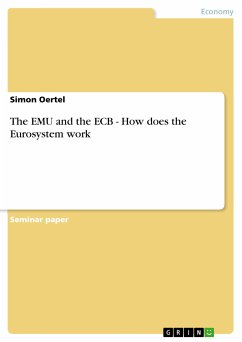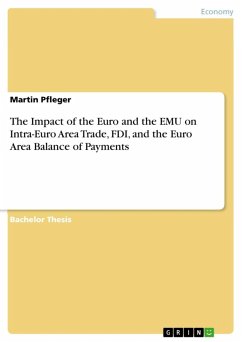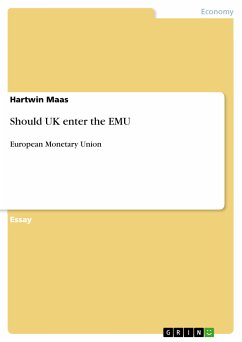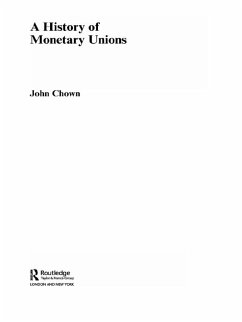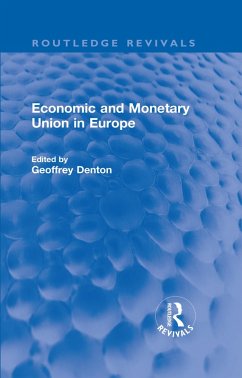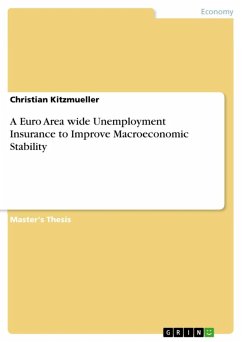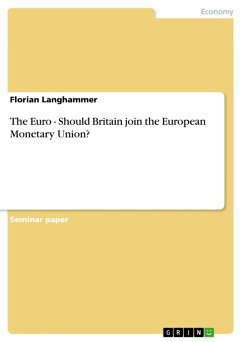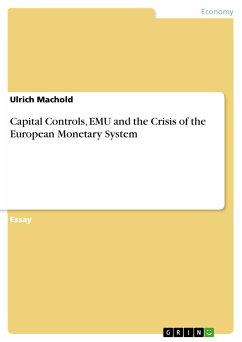
Capital Controls, EMU and the Crisis of the European Monetary System (eBook, ePUB)

PAYBACK Punkte
0 °P sammeln!
Essay from the year 2002 in the subject Economics - Monetary theory and policy, grade: 1.0 (A), Technical University of Berlin (European Center), course: European Monetary Integration, language: English, abstract: For European monetary affairs, 1992 was a watershed: In January, the European Monetary System (EMS) celebrated five years of stability; by November, it was all but falling apart. Two of its members had been driven from the system, two others had experienced steep and involuntary devaluations. The EMS was undergoing the worst crisis of its existence. When analysing these events, they ...
Essay from the year 2002 in the subject Economics - Monetary theory and policy, grade: 1.0 (A), Technical University of Berlin (European Center), course: European Monetary Integration, language: English, abstract: For European monetary affairs, 1992 was a watershed: In January, the European Monetary System (EMS) celebrated five years of stability; by November, it was all but falling apart. Two of its members had been driven from the system, two others had experienced steep and involuntary devaluations. The EMS was undergoing the worst crisis of its existence. When analysing these events, they inevitably lead to the issue of financial liberalisation. If the argument that the lack of control over international capital flows is at the heart of such crises is true, their costs must be weighed against the benefits of the liberalisation process. But can the use of capital controls be in any way compatible with the process of European financial integration? Does the idea not go against the entire philosophy embodied in the project of economic and monetary union (EMU)? Some authors argue that not only can capital controls be made compatible with the integration process but that they are in fact the only option available to safeguard any pegged exchange rate system against the excesses of occasionally irrational and overwhelmingly powerful financial markets. The resulting question, though merely speculative in retrospect, is thus two-fold: Could capital controls have helped to prevent the 1992-crisis of the EMS and would it therefore have been beneficial to allow for this instrument afterwards, instead of widening the fluctuation bands to 30 per cent? And, resultingly, could capital controls exist within a fixed exchange rate system like the EMS then and the EMSII in the future? I shall, as preliminaries, first briefly summarise the main arguments of the discussion on the desirability of capital controls. Subsequently, I shall discuss, whether capital controls can actually achieve what they were designed for. In the main section, I shall analyse what causes for the 1992-crisis seem probable, why the post-1992 re-constitution of the system took the form it actually did and whether capital controls could have been relevant in this context or will do so in the future.
Dieser Download kann aus rechtlichen Gründen nur mit Rechnungsadresse in A, B, BG, CY, CZ, D, DK, EW, E, FIN, F, GR, HR, H, IRL, I, LT, L, LR, M, NL, PL, P, R, S, SLO, SK ausgeliefert werden.





